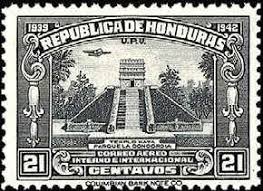Honduras, officially the Republic of Honduras, is a country in Central America. The literal meaning of the term “Honduras” is “depths” in Spanish. The name could either refer to the bay of Trujillo as an anchorage, fondura in the Leonese dialect of Spain, or to Columbus’s alleged quote that “Gracias a Dios que hemos salido de esas Honduras” (“Thank God we have departed from those depths”).
Honduras was home to several important Mesoamerican cultures, most notably the Maya, before the Spanish Colonization in the sixteenth century. The Spanish introduced Roman Catholicism and the now predominant Spanish language, along with numerous customs that have blended with the indigenous culture. Honduras became independent in 1821 and has since been a republic, although it has consistently endured much social strife and political instability, and remains one of the poorest countries in the Western Hemisphere.
In the late nineteenth century, Honduras granted land and substantial exemptions to several US-based fruit and infrastructure companies in return for developing the country’s northern regions. Banana-exporting companies, dominated until 1930 by the Cuyamel Fruit Company, as well as the United Fruit Company, and Standard Fruit Company, built an enclave economy in northern Honduras, controlling infrastructure and creating self-sufficient, tax-exempt sectors that contributed relatively little to economic growth. In 1904, the writer O. Henry coined the term “banana republic” to describe Honduras.
Constitutional crises in the 1940s led to reforms in the 1950s. One reform gave workers permission to organize, and a 1954 general strike paralyzed the northern part of the country for more than two months, but led to reforms. In 1963 a military coup unseated democratically elected President Ramón Villeda Morales.
In 1960, the northern part of what was the Mosquito Coast was transferred from Nicaragua to Honduras by the International Court of Justice.
Articles
- Big Blue 1840-1940: Honduras- Seebecks, Forgeries, and Fakes- Oh My!
- Philatelic Database: Stamps of Honduras: Issues of 1931
Blogs
YouTube
- Mi Oficina Philatelic Society: El estilo Provincial Hispano Criollo en la arquitectura religiosa y civil en la Filatelia Hondureña
- Stamp Chats: An Introduction to Honduran Philately








